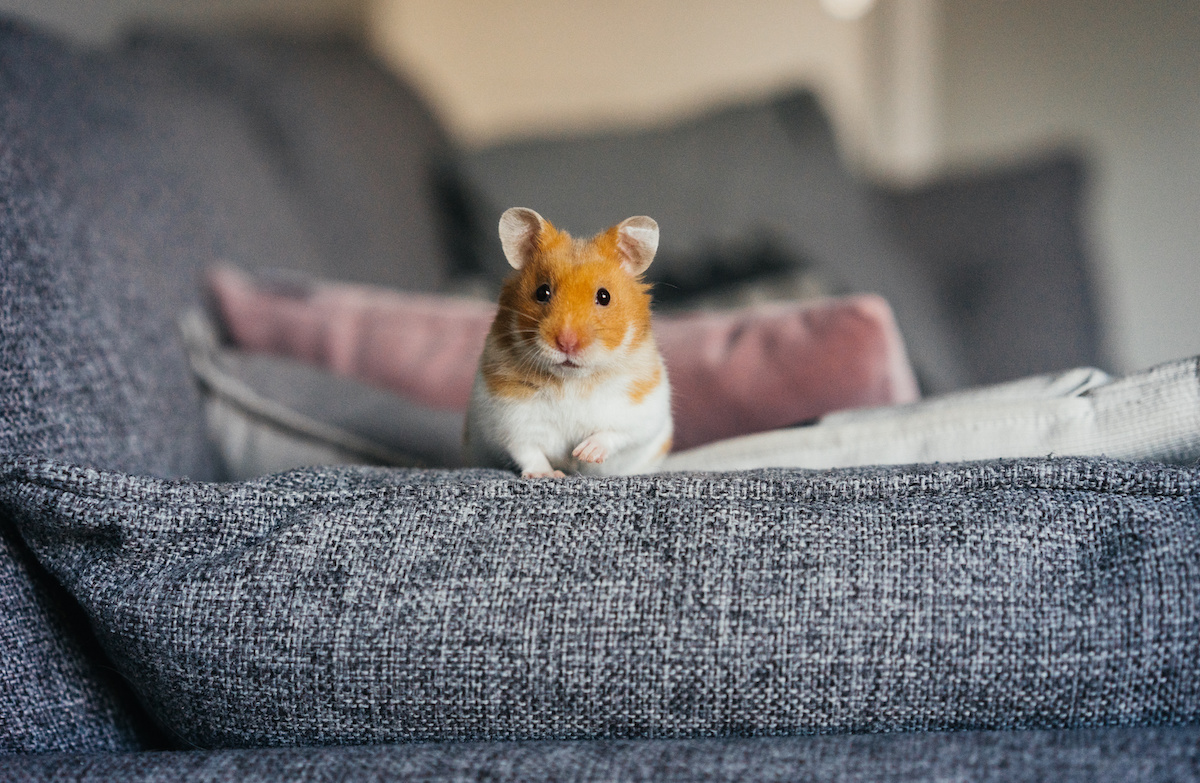Let’s face it; hamsters are tiny, and a cat or dog will look like Godzilla to them. It’s in everyone’s best interest to keep your other pets away from your hamster. And this exclusion also goes for kids who might become a little obsessive about playing with the hamster; these are shy, solitary creatures.
One of the first things a new hamster owner wonders about is where they should put its cage? Finding the perfect spot is the first step in creating a nurturing environment for your little furball. After extensive research, I found out some information that’ll help you find the perfect location inside your home.
But I know listing them out is a little vague, which is why I’ll discuss them further later in this post. So please, read on and get all the information you’ll need to find the perfect cage location for your hamster!
Why The Cage Location Is Important
The location of the cage is a crucial piece to creating a habitat where a hamster can thrive.
Here are the top things you need to consider:
- How quiet the room is
- Presence of Ultrasonic Sounds
- The Room’s Lighting
- Ability to Keep a Stable Temperature
- Your Other Pets’ Ability to Access the Room
Hamsters are Nocturnal
Hamsters sleep during the day because they’re classified as crepuscular animals.
A quiet atmosphere within these times will help ensure your hamster doesn’t become grumpy. Just like with humans, lack of sleep can impact a hamster’s mood and personality.
A quiet room away from the chaoticness that lies inside a human’s household will help brighten your hamster’s day. It simple really; a hamster that’s well-rested will be more open to being sociable.
This is why a bedroom may not be the best place for your hamster.
What is Ultrasonic Noise?
You might see the world ultrasonic and think what’s that? Well, ultrasonic refers to sounds that have frequencies above the audible levels of humans: meaning we can’t hear them.
But hamsters have incredible hearing, which can detect ultrasonic sounds and can be quite irritating for them. Ultrasonic sounds can be emitted from household electronics items such as computers or televisions.
Keeping your hamster’s cage in a room without these items will help them have uninterrupted sleep sessions.
If you don’t, these sounds can become incredibly annoying for your hamster and affect their overall mood. I’d imagine it’d be like having the constant sound of white noise infecting your eardrums on a 24/7 basis.
Lighting
Another factor that’s massively essential to your hamster’s sleeping schedule is the room’s lighting.
Hamsters are routine based creatures that could benefit from having the room darkened during their sleep sessions. But since their routine based creatures, the lights being flicked on and off at random points throughout the day could cause some problems.
This is why a room that’s able to offer them lights being turned off could do wonders in creating a nurturing habitat.
But again, make sure you keep the lights off or on during the same portions of each day; this will allow your hamster to adjust their sleep schedules around the room’s lighting.
Stable Temperature is Important Too
An example of somewhere that isn’t an appropriate place would be a hallway or a garage. Both these places are prone to temperature fluctuation that could threaten your hamster’s life; basements are also a no-go. Any area with drafts shouldn’t be considered as well. As a result, you shouldn’t think of putting your hamster’s cage near an air conditioner or air conditioning vent either.
Both of these scenarios can cause a heap of issues you don’t want to deal with as a hamster owner. These issues obviously mean you must keep these little creatures away from windows and direct sunlight. But things like fireplaces, radiators or any room that’s damp/humid could cause significant issues too.
So What About My Bedroom is It Safe?
There are some things you should keep in mind before deciding on your bedroom being your hamster’s home. No matter the area you put the cage into its smell should be your primary concern. I mean, a cage without proper upkeep can get downright revolting. It can cause serious health issues for the hamster itself.
This is why you should always scoop out the cage daily to make sure nothing lingers enough that it’ll become an issue. You should also dump out all the bedding weekly and clean it with water to ensure the cage is completely clean. If anything, the cage being in your room will keep you on your toes as an owner.
Hamsters are going to chew whatever’s around them. It’s a foregone conclusion that becomes more of a significant issue for people who keep them inside their bedrooms.
For these people, chew toys become a must-have accessory (you should have them regardless). If you don’t give them chew toys, your hamster will start chewing the cage’s bars.
You also need to be aware that your hamster will make noise all night while they are active. So, it could affect your sleep as well.
Contact Animal Care Center if you have any questions.






